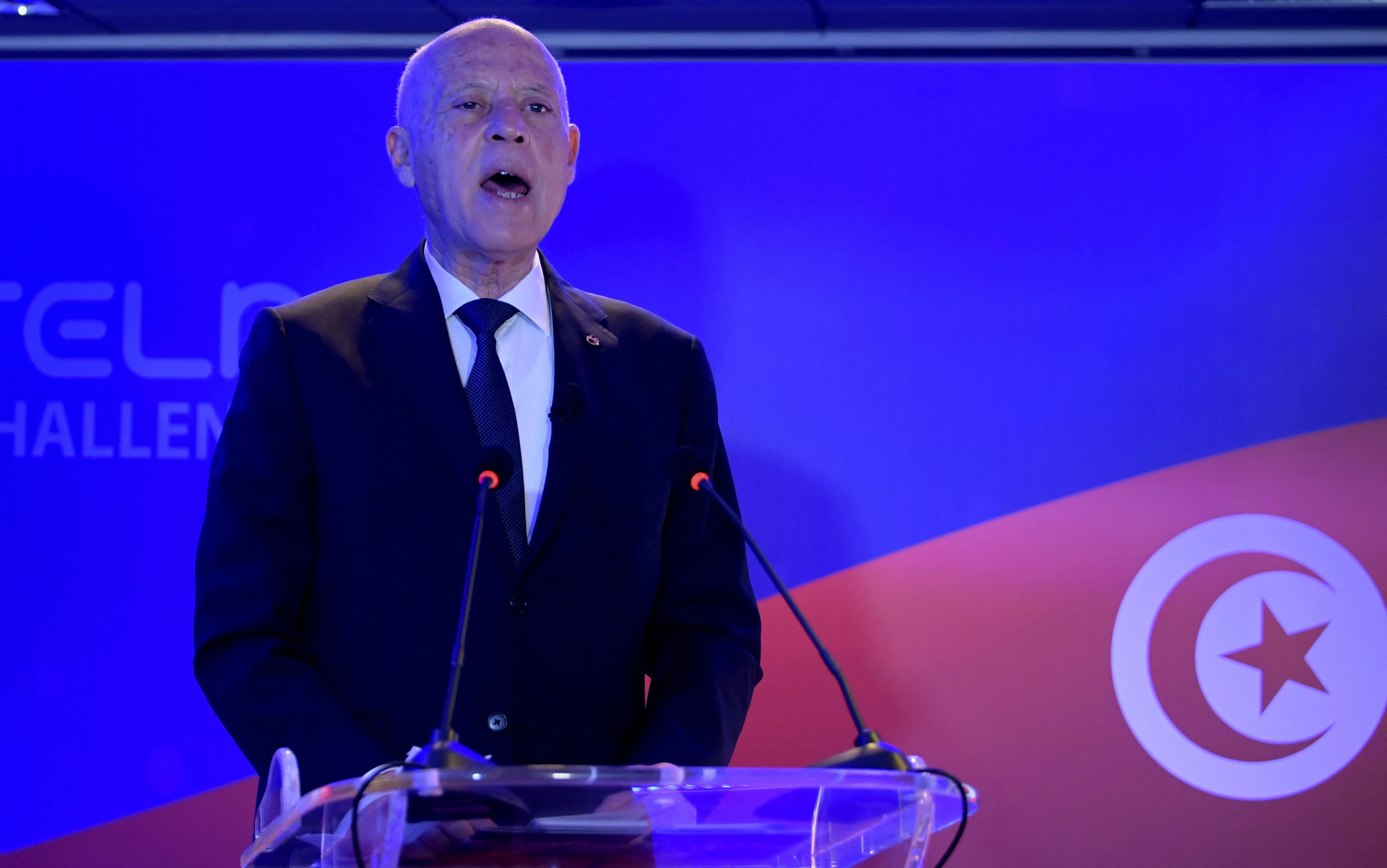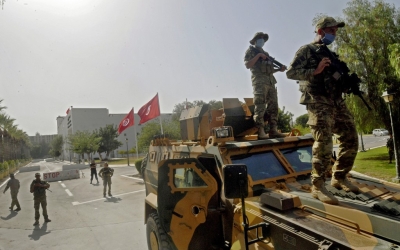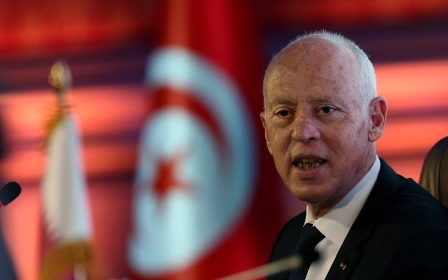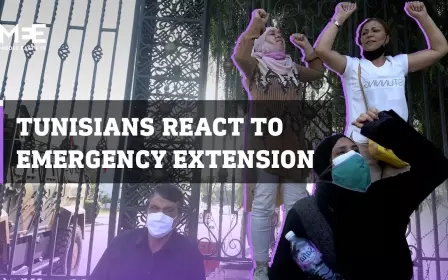G7 countries urge Tunisia's Kais Saied to 'return to constitutional order'

The G7 group of advanced economies has urged Tunisia's President Kais Saied to appoint a new head of government and "return to a constitutional order", weeks after he seized power in what his opponents have branded a coup.
The statement from the G7 ambassadors, put out by the British Embassy on social media on Monday, is the most significant public expression of unease by major democracies since Saied seized governing powers in July.
"We urge a swift return to a constitutional order, in which an elected parliament plays a significant role," the statement said.
"We underline the urgent need to appoint a new head of government to form a capable government able to address the immediate economic and health crises facing Tunisia."
New MEE newsletter: Jerusalem Dispatch
Sign up to get the latest insights and analysis on Israel-Palestine, alongside Turkey Unpacked and other MEE newsletters
In May, Middle East Eye revealed a secret document was being circulated recommending Saied invoke Article 80 of the constitution and seize control of the country, citing emergency powers.
In late July, Saied did exactly that, saying the coronavirus and economic situation had become so dire that he needed to freeze parliament and dismiss the government, as well as launch an anti-corruption drive.
Hichem Mechichi, his dismissed prime minister, was detained and beaten by security forces after being told that he would be replaced, sources told MEE. Mechichi made no public appearance for 10 days after Saied's announcement.
Last month, Saied extended the indefinite suspension of parliament - calling the body a "threat to the state".
So far, Saied has not presented a roadmap for his plan, triggering fears of a return to authoritarian rule in the country.
The Tunisian constitution states that "measures necessitated by this exception situation" can be used, but that there must be a consultation with the speaker of parliament and the constitutional court must be informed. But as yet the constitutional court has not yet been created in Tunisia, one of the main unfulfilled promises of the 2011 revolution.
The G7 statement said appointing a prime minister would "create space for an inclusive dialogue about proposed constitutional and electoral reforms" and added that democratic values would remain central to the group's relations with Tunisia.
"The sooner that President Kais Saied can convey a clear sense of the way forward that responds to the needs of the Tunisian people, the sooner Tunisia can focus on tackling the economic, health and social challenges facing the country."
Middle East Eye delivers independent and unrivalled coverage and analysis of the Middle East, North Africa and beyond. To learn more about republishing this content and the associated fees, please fill out this form. More about MEE can be found here.





